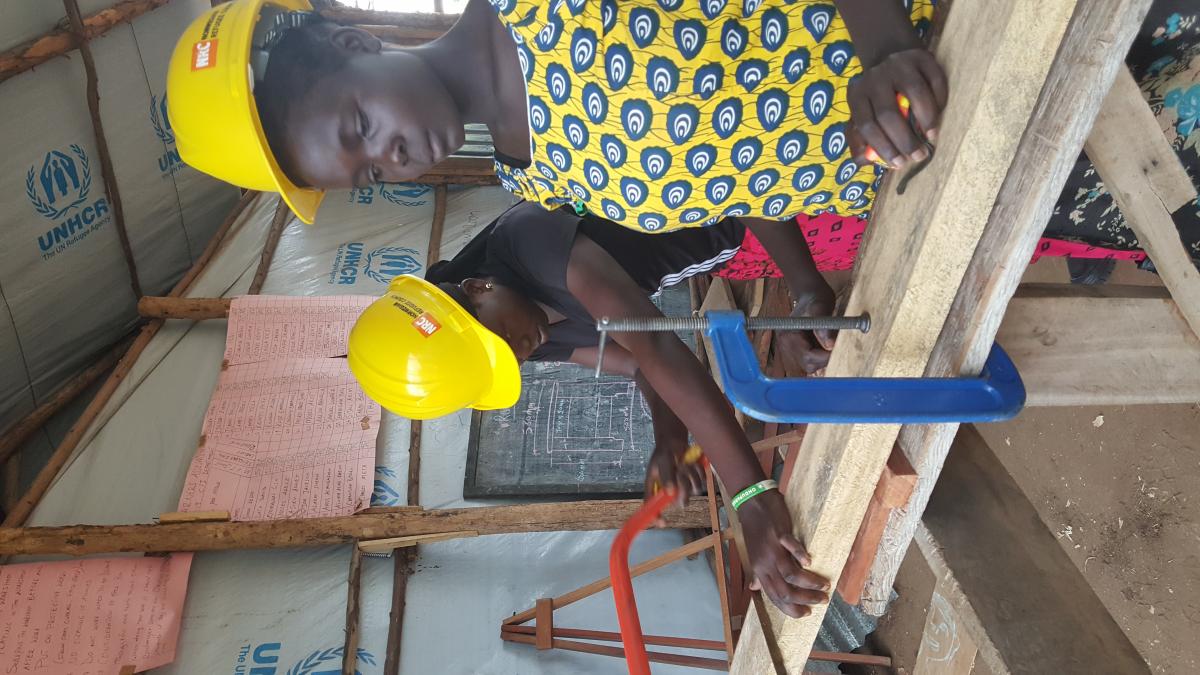Face to face with the carpentry girls at the world’s largest refugee camp
In the cold afternoon at the world’s largest refugee camp, two
girls enter into a carpentry workshop. Three years ago, none of them knew how
to even cut timber. Under the watchful eye of Ugandan instructors, the young
girls were determined to enter into a field commonly reserved for men. When it
came to cutting timber, they also did it. They put on helmets and boots. After three months of intensive training, they
are able to show their products including chairs, stools and tables. They were determined.
This is Sarah. She is 18 year old Ugandan national. And that
is Keji. She is a 19 year old south Sudanese refugee. Keji fled the war in South
Sudan and took refuge in Bidi Bidi. At their workshop, they work as a team. When
I arrived in their workshop in the afternoon, the young ladies were at
work. Keji was picking timber. Sarah was
sharpening the tools. They discussed
amongst themselves like doctors preparing for delicate heart surgery. Then
Sarah picks the timber and places it on the table. Keji picks a tape measure.
She measures the timber. She marks it. Maybe about two feet. Then Sarah picks a
sow. She places the sow exactly on the mark and begins to it cut away. The
timber splits into two. Keji picks the piece that falls on ground. Places it at
angle looks at it like a Navy sniper Seal taking aim at a target. She picks a
sow and begins to cut at an angle. Done! She looks at it again. Then, she adjusts her helmet. Sweat drops on
her face. She wipes the sweat with the back of her hand. She looks at me. I smile. She smiles and
continues her work.
The
afternoon cloud covering Bidi bidi refugee camp roars. The sky threatens to
give way. I request permission to enter inside the workshop. Sarah nods. I
squeeze myself on the corner. I ask Keji
if I can take a few photos. She nods and continues to polish her timber. Maybe
after ten minutes, she has completed polishing the timber. It’s ready. They are
determined to show me how they can make a table. I become impatient and tell them, its okay
now. I have seen it. Still not convinced, Keji goes inside some room. She returns
with two stools and a table. She smiles at me. While speaking in Arabic, she
confidently tells me how she made the table and stools. I tease her that it can’t
be true. She challenges me to wait and watch her make another stool. Now, I
have spent about maybe two hours interacting and watching these young girls. My
conversations have slowed their work. I
tell them of some high level meeting that, I am to attend in the big city. They
smile and ask no questions.
Today,
they were able to cut and prepare timber for their next table and show me the
product. They tell me, carpentry is not a difficult job and that it’s not only
for men. When I ask them, what they want. None of them mentions the obvious
things like, I want you to give me money etc. Keji wants to return to South
Sudan and in her words to become a ‘roofer’ And Sarah? She wants to open her
workshop. Now, it’s getting dark. The young ladies escort me out. I jump into my big car. Sarah and Keji
return to their workshop. Maybe, I will meet Keji when she is a minister of
technology in south Sudan, while Sarah is the vice president of Uganda. I don’t
know. But right now, I ask John my driver to press the accelerator and drive me
out of Bidi Bidi. We head towards Kampala.
Latest news from this project
No news

